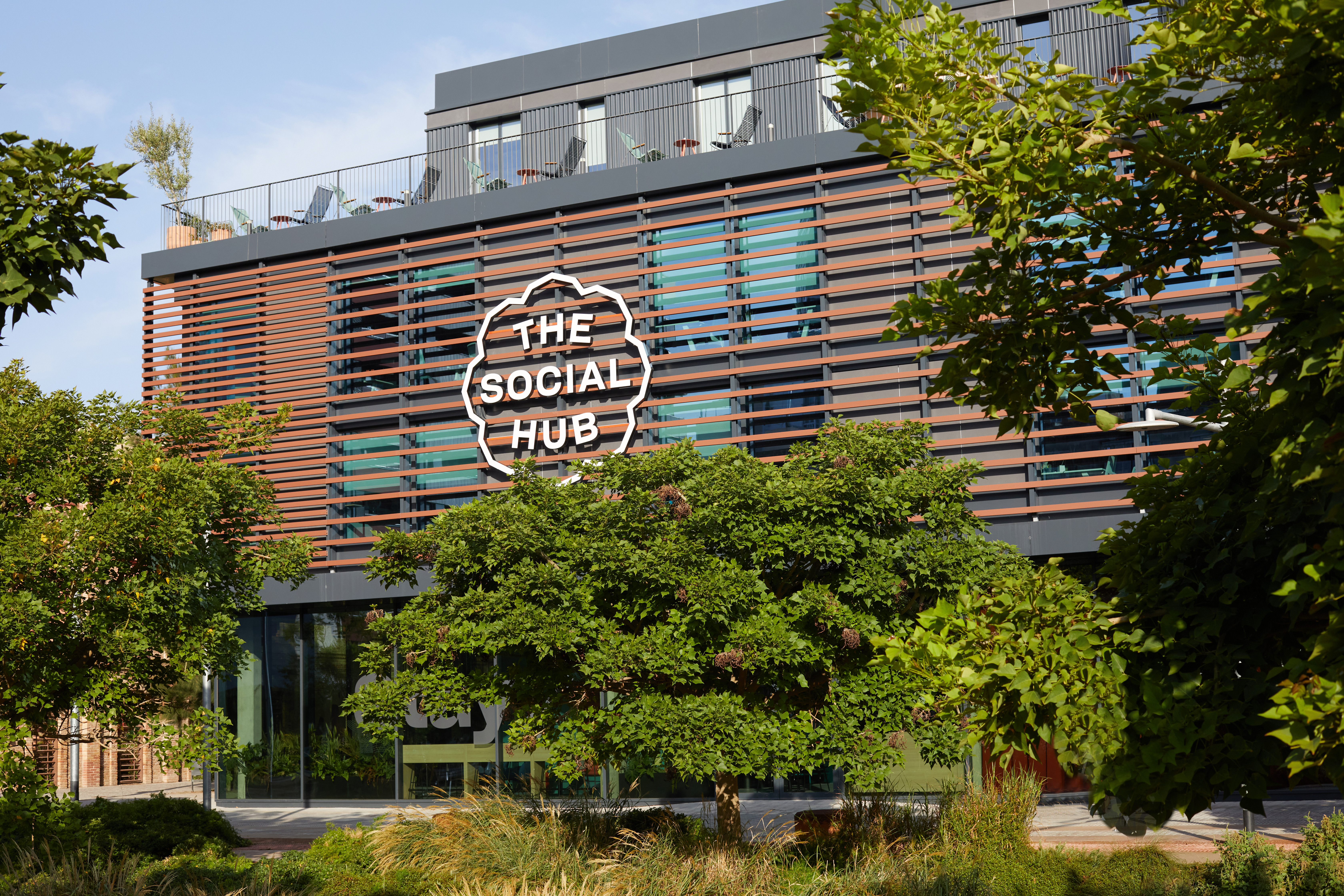

TSH Group Holding B.V.

North Holland, Netherlands The
October 2024
Real estate development
Service with Significant Environmental Footprint
Austria,
France,
Germany,
Italy,
Netherlands The,
Portugal,
Spain,
United Kingdom
Driven by a purpose to create a better society, The Social Hub is a pioneer in the hybrid hospitality industry, offering spaces where guests from all walks of life can learn, stay, work and play. With hotels located across Europe’s most dynamic cities, The Social Hub connects and creates a unique community of travellers, students, business professionals, neighbours, and more. From hotel facilities, student and extended stay rooms, co-working spaces, through to auditoriums, gyms, event spaces and a comprehensive social impact programme including its TSH Talent Foundation, The Social Hub is a place where people can connect and learn from one another, build a community and engage in unique experiences that help spark ideas and make change happen. Founded in 2012, The Social Hub is headquartered in Amsterdam and counts with more than 1,000 employees.
Overall B Impact Score
Governance 9.3
Governance evaluates a company's overall mission, engagement around its social/environmental impact, ethics, and transparency. This section also evaluates the ability of a company to protect their mission and formally consider stakeholders in decision making through their corporate structure (e.g. benefit corporation) or corporate governing documents.
What is this? A company with an Impact Business Model is intentionally designed to create a specific positive outcome for one of its stakeholders - such as workers, community, environment, or customers.
Workers 23.8
Workers evaluates a company’s contributions to its employees’ financial security, health & safety, wellness, career development, and engagement & satisfaction. In addition, this section recognizes business models designed to benefit workers, such as companies that are at least 40% owned by non-executive employees and those that have workforce development programs to support individuals with barriers to employment.
Community 18.4
Community evaluates a company’s engagement with and impact on the communities in which it operates, hires from, and sources from. Topics include diversity, equity & inclusion, economic impact, civic engagement, charitable giving, and supply chain management. In addition, this section recognizes business models that are designed to address specific community-oriented problems, such as poverty alleviation through fair trade sourcing or distribution via microenterprises, producer cooperative models, locally focused economic development, and formal charitable giving commitments.
Environment 52.5
Environment evaluates a company’s overall environmental management practices as well as its impact on the air, climate, water, land, and biodiversity. This includes the direct impact of a company’s operations and, when applicable its supply chain and distribution channels. This section also recognizes companies with environmentally innovative production processes and those that sell products or services that have a positive environmental impact. Some examples might include products and services that create renewable energy, reduce consumption or waste, conserve land or wildlife, provide less toxic alternatives to the market, or educate people about environmental problems.
What is this? A company with an Impact Business Model is intentionally designed to create a specific positive outcome for one of its stakeholders - such as workers, community, environment, or customers.
Customers 2.9
Customers evaluates a company’s stewardship of its customers through the quality of its products and services, ethical marketing, data privacy and security, and feedback channels. In addition, this section recognizes products or services that are designed to address a particular social problem for or through its customers, such as health or educational products, arts & media products, serving underserved customers/clients, and services that improve the social impact of other businesses or organizations.